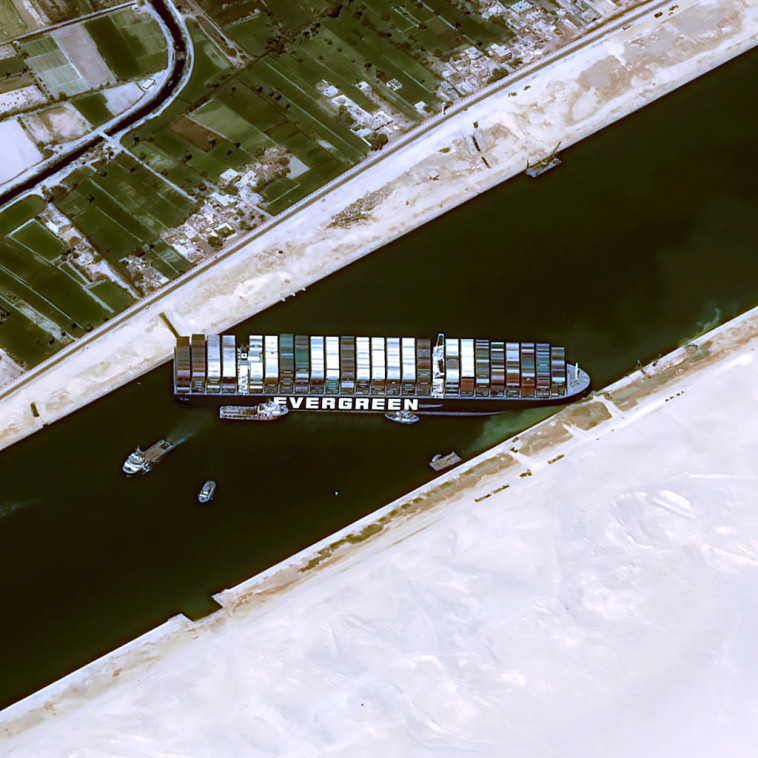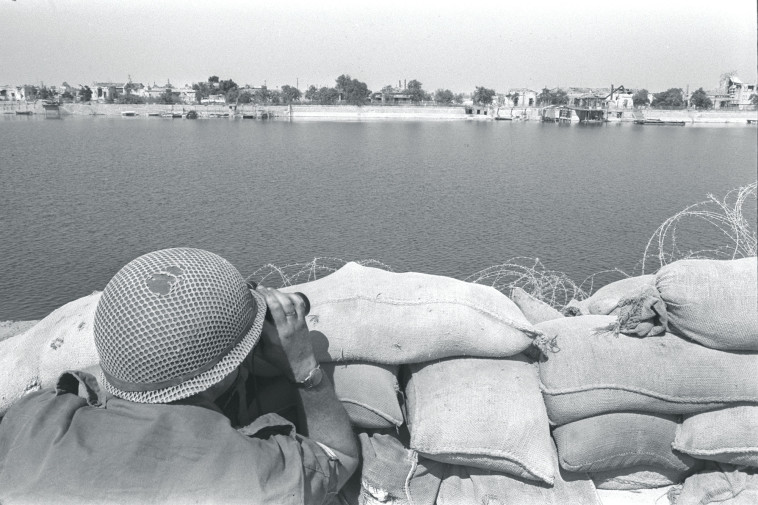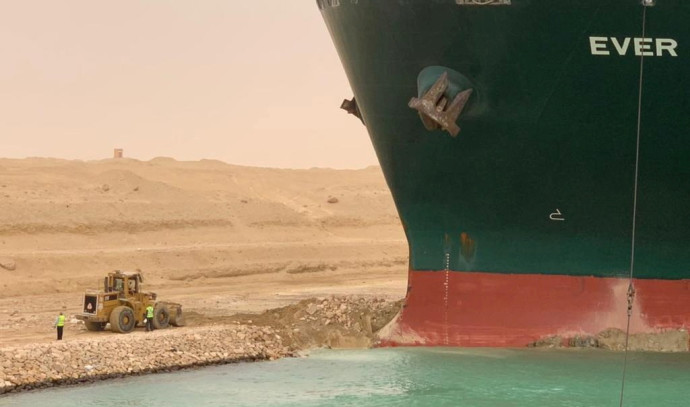CNN reported today (Friday) that the Suez Canal authorities need to remove about 20,000 cubic meters of sand in order to successfully release the huge container ship there since Tuesday.
The Ever Given, a container ship of equal height to almost every Empire State building, ran aground in the Egyptian Canal after being caught in winds of 40 mph and a sandstorm that caused low visibility and poor navigation.
Rescue efforts in the canal have been going on for several days and include the use of two excavators, nine tugboats and four bulldozers on the bank of the canal. In order to allow the ship to float, the rescue team will have to extract between 15,000 and 20,000 cubic meters of sand to reach a depth of 12 to 16 meters, the SCA said on Thursday. About eight times the size of an Olympic-size swimming pool.
The SCA added that it is discussing the option of moving the boat, which is 400 meters long and 59 meters wide, by digging the surrounding area. The SCA senior canal pilot told CNN on Wednesday that “re-flooding of the massive ship is ‘very technically complicated’ and could take days.”
 The ship stuck in the Suez Canal (Photo: CNES / AIRBUS DS via REUTERS)
The ship stuck in the Suez Canal (Photo: CNES / AIRBUS DS via REUTERS)But every passing day involves a high cost. About 12% of the world’s trade passes through the Suez Canal, and the value of the cargo that passes through it every day is about ten billion dollars. More than 18,800 ships with a net volume of 1.17 billion tonnes passed through the canal during 2020, an average of 51.5 ships a day.
At least 160 ships carrying essential fuel and cargo are now waiting to cross the blocked waterway, according to a senior SCA canal pilot. Some ships have decided to divert their voyage around Cape Horn to avoid blocking the Suez Canal – but according to the International Shipping Bureau, they stand at an additional 3,800 miles and an additional 12-day sailing time.
“Not only will the goods aboard the Ever Given be severely delayed, but the hundreds of other ships will also be affected. The damage done to the global supply chain will be significant,” ICS Secretary General Guy Platten said.
Experts fear that if the ship is not released soon, this could affect the oil market, shipping and container tariffs, which will lead to an increase in the cost of daily goods.
“Most trade between Asia and Europe still relies on the Suez Canal and given that essential goods, including essential medical equipment and PPE, pass through these ships, we call on the Egyptian authorities to do everything possible to reopen the canal as soon as possible,” Platen said.
 Their observation in the Suez Canal, 1970, archive (Photo: Moshe Milner, GPO)
Their observation in the Suez Canal, 1970, archive (Photo: Moshe Milner, GPO)This is not the first time the canal, which opened in 1869, has been closed to shipping. Between 1956 and 1957 the canal was closed due to the Sinai War between Israel, Britain and France on the one hand and Egypt on the other. The canal was closed again in 196 when Israel occupied the Sinai Peninsula and did not reopen until 1975.
Closing now, however, may have a much greater impact than in the last two Saturdays as the level of trade between Europe and Asia has increased significantly in the decades since.
